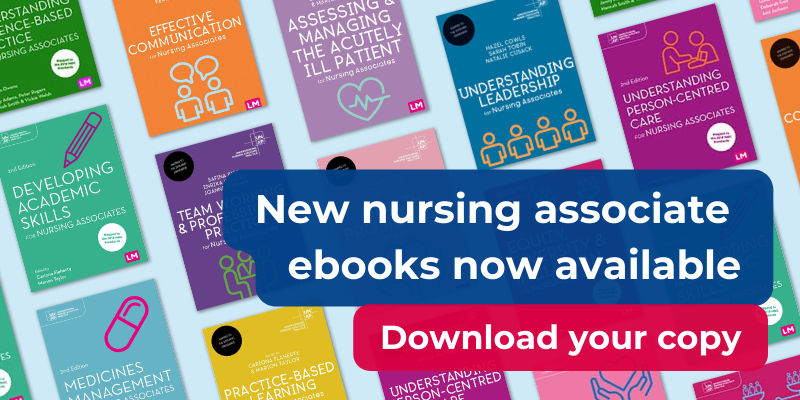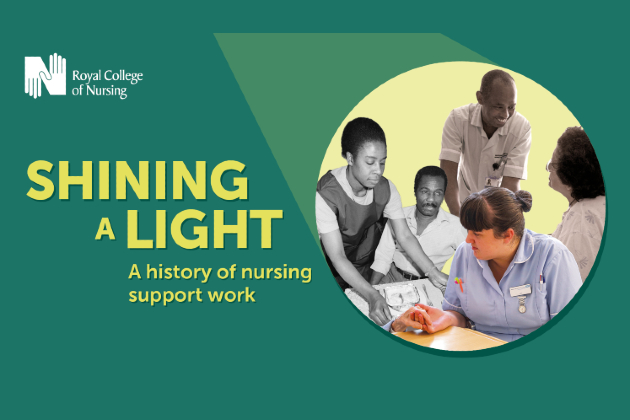“If health care assistants [HCAs] don’t feel appreciated, they’re not going to have enthusiasm for their role,” says Tracy Snipp, who’s an HCA at Queen Elizabeth Hospital in South London, part of Lewisham and Greenwich NHS Trust. “Wellbeing does need to be more of a priority.”
Around two years ago, Tracy created a quality improvement programme at the hospital, where she’s worked for six years, to help all HCAs find joy in their work. Working with Catriona Stapleton, the hospital’s Senior Quality Improvement Lead, Tracy put together surveys which asked HCAs ‘What matters to you?’
“We asked HCAs what could be improved and what would make them feel better at work,” Tracy says. “It was the first time it had been done.”
Initially, surveys revealed that only 40% of staff said they found joy in their work. That had to change.
Before she began working in health, Tracy spent many years caring for her mum. Staff at the hospital spotted her natural talent and suggested she consider a career in care. From her experience since, Tracy knew that most HCAs love the patient-focused nature of their role and pick up important details about each patient’s life and health while caring for them. “We know our patients better than most people because we spend so much time with them, at their bedside,” she says.
But this wasn’t always recognised or taken full advantage of. She began to think of changes that could be made to introduce that missing recognition and involvement.
Tracy placed a connect 4-style game with red and green counters in the staff room. She asked HCAs to assess their day: “If you had a bad shift put a red one in and if you had a good shift put a green one in. Then write down what made it a good or bad shift.” This served as a visual representation of staff mood, but also helped gather information about what could be improved.

“At first, some people would say: ‘No one ever listens’. They felt very negative. But I’d say, ‘We have an opportunity to change things, we can do little things to make an improvement.’ Once things started to happen, people got on board.”
Tracy came up with measures to empower HCAs, such as the right to choose their own break times. But one change has boosted her colleagues’ confidence and wellbeing more than any other – the chance to take part in ward boards rounds, discussions about each patient’s journey, during which daily tasks are assigned. “Before, we weren’t invited to board rounds with the doctors and registered nurses, but because we have the knowledge about how our patients are eating and drinking, bowel movements, etc, registered nurses had to go back and forward all the time between us and the doctors,” Tracy says.
“Now, we’re invited on board rounds every day, so the registered nurses and doctors get to know us and can come directly to us to ask about the patient.”
This simple change has had a huge impact on the morale of HCAs. “It made us feel part of the team,” Tracy says. “Before, HCAs used to say ‘I’m just a health care assistant’ but now they’re not saying that. We have real input.”
The proportion of staff reporting that they find joy in their work has increased to 90%. Tracy says: “If we’re happy, the patients see that. We feel content, we feel appreciated, rather than feeling: ‘is it really worth it?’ Because that’s a bit how it felt to begin with.”
It’s also empowered HCAs to do more independently, freeing up the time of their registered nurse colleagues. Tracy says: “We take initiative now because we feel confident, we’re feeling proud of what we achieve and what we can do.”

On RCN Nursing Support Workers’ Day last year, Tracy was awarded a Cavell Star Award for her leadership of the Joy in Work Quality Improvement project. Her colleague Catriona told the Cavell Nurses Trust: “She has motivated so many HCAs to believe in themselves and make a real difference.”
It was a team effort though, Tracy says and she thanks her fellow HCAs, plus her manager Leah Rushingwa and head of ��ͷ������ Ann-Marie Coiley for helping make the project possible.
Tracy’s advice to anyone thinking of following in her footsteps? “Just do it. Speak up and maybe you’ll change things for the better,” Tracy says. “If HCAs are feeling appreciated, their work being noticed, the whole dynamic of your workplace will change. If they’re underappreciated, they might see it as just a job. But it’s not just a job. When you’re working in this sector, you need to have confidence to speak up on behalf of your patients.
“You need to be proud in your job.”
Read more
Every year the RCN celebrates Nursing Support Workers' Day on the 23 November. We’d love to hear your stories and help you champion your colleagues and the valuable contribution you all make, whatever role you do. Find out more about Nursing Support Workers' Day here.








